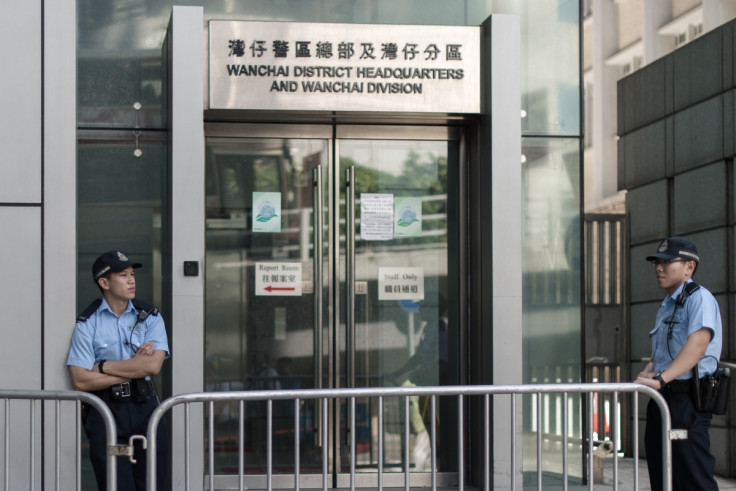Hong Kong Pro-Democracy Leaders' Arrest 'Is Political Persecution'

The organisers of a giant pro-democracy rally in Hong Kong arrested on Thursday claim they are the victims of political persecution.
Police in the semi-autonomous territory held five members of the Civil Human Rights Front, days after hundreds of thousands of people answered the activist group's call to take to the streets and protest against Beijing's control of Hong Kong's public affairs.
"The only reason [for the arrests] that I can think of is political persecution," Front leader Johnson Yeung Ching-yin said, as he entered a police station, the South China Morning Post reported.
Yeung was held for questioning along with fellow Front members Daisy Chan Sin-ying, Ivy Chan Siu-ping, Kitty Hung Hiu-han and Shun Wing-kan, who drove the vehicle that lead demonstrators on July 1.
Police claimed the five deliberately slowed down the authorised march and accused them of obstructing traffic by driving slowly, encouraging protesters to sit in the street, obstructing police and disobeying instructions.
"It is obvious police are flipping through the law books and looking for whatever laws they can use to arrest them," Cyd Ho Sau-lan, a lawmaker with the centre-left Labour Party said.
Police said the activists will be detained pending further investigation.
The Front claimed that a bottleneck was created after police slowed down the rally and they criticised the arrests as "obvious political pressure".
"The government did not respond to the 510,000 people who took to the streets of Hong Kong and instead made political arrests of organisers," it said in a statement.
Police gave a more conservative turnout figure of 92,000 for the annual rally, which commemorates the return of the former British colony to China in 1997.
The march has become an occasion for residents to air complaints over a range of grievances in the last two decades.
This year, attendance was boosted by a policy document released by China's cabinet, which claimed that Beijing has ultimate power over Hong Kong and the city leader must be patriotic to China.
The so-called "White Paper" was issued in June, as another pro-democracy group was preparing to launch an unofficial referendum in support of universal suffrage that was voted for by almost 800,000 people.
Voters expressed the desire that Hong Kong's leader is appointed through elections in which opposition candidates are allowed to run.
The city's chief executive is currently picked by an elite pro-Beijing committee.
Police also arrested 511 people who after the march staged an unauthorised overnight sit-in at the financial district. Most have been released with a warning, while 25 were released on bail and told to report back at another date.
© Copyright IBTimes 2025. All rights reserved.




















